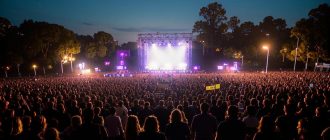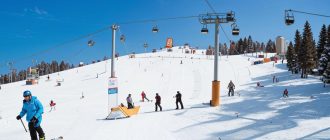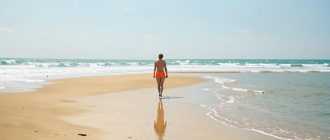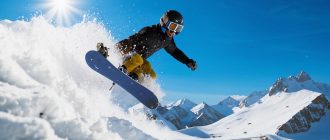Iskander Yadgarov became known to many ordinary people after his statement on Instagram. The athlete wrote: “If this post collects 20,000 likes, I will win the Moscow Marathon”. The post did, and he won. That’s what a man of his word means.
And this is far from Iskander’s only achievement. For example, during his self-isolation, he, together with another runner, Ivan Mototrin, broke the record in a 50-kilometer race on the track. What to speak of ordinary distances.
Now Iskander is returning to his usual rhythm, preparing to overcome the Moscow Marathon again and setting even more ambitious goals for himself.
– How did your acquaintance with running begin?
– It happened in 2009, when I entered Moscow State University. Before that, I had not been involved in any sports. And there we had a distribution of different types of sections in physical education, and I chose track and field. And then at the first lesson it was necessary to run the standard for a thousand meters – to check who is ready. I came second with a result of 3:15, which is certainly not bad. And at that moment I finally decided to take up track and field athletics. And at that time this sport lived a bright life at the university. There was a huge section, a good team of coaches, a lot of students were actively engaged. That’s what “sucked” me in.
– Did you initially perceive it only as a hobby or did you already set big goals for yourself?
– No, I remember the first goal very well. I thought it would be good if I could become the best in my course. But even there it wasn’t so easy, because there were guys who practiced semi-professionally at school, and I couldn’t beat them for so many years.

– What kind of relationship did you have with sports in your childhood?
– Basically, I had practically no sports in my childhood, despite the fact that my father was a physical education teacher. He used to run once too, but only until university days… And having not the most successful experience, he tried in every possible way to dissuade me from sports and wanted me to follow “other paths”, to study more. There were cases when he took the guys to some district competitions, and I did not get there, although I was better than many of them. So I invested in my studies.
– Now you are very good at combining your hobby with your work as a programmer at Yandex. In one of your interviews, you said that the latter is still a higher priority for you. Do you think something has changed over this time?
– I think the priority is gradually shifting. Because the more running sucks me in with projects, responsibilities and connections, the more it is already embedded in my life. The hobby has started to generate income, and while it used to be small, it’s now approaching the order of magnitude of the income I have at work. So I don’t rule out that someday in theory (that would be great, though I have little faith in it), if the income equals the work income, I might consider choosing one. But on the other hand, if I can combine both, why give up anything?
But if you look into the future, of course, it’s more important to invest in work than in running. After all, you realize that your sporting life will soon be over. Unless this sport is converted into something long-term.

– I know that Yandex encourages employee involvement in sports. Does this concern you in any way?
– “Yandex” supports active lifestyle of employees, but not professional sports. I don’t have any privileges at all, but I’m not trying to “beat them out”. I don’t want to be evaluated as a sportsman at Yandex at all. I want to be a good employee without the sporting stigma. That’s why I don’t even try to get any favors, although I don’t think I’ll get them here.
– How was your quarantine? Did you continue to work, train?
– First of all, the quarantine started with bad news for me. I was preparing for the Russian Championship, I really wanted to fulfill the Olympic standard. For this purpose I saved up a huge vacation at work, first I spent three weeks on a trip to Kenya, one week of which was the New Year holidays. I stayed there, trained in Moscow and took vacation again to go to Kyrgyzstan, to prepare for the Russian Championship and then to perform. I was in great shape. And a week or two before the Russian Championships were canceled because of the pandemic. It was terrible. After that we came back to Moscow and realized that most likely everyone would be quarantined, and Yandex had already switched to remote work.
At that point we decided to go as a family to Kislovodsk. It’s a good place for training, it’s popular in Russia among runners. We rented accommodation and lived there for almost five months. I trained and worked remotely. This partly saved my form, because here in Moscow it was difficult to train for a couple of months because of the restrictions.

– So you managed not to lose your form?
– Practically. Of course, I still lost my form, but motivation plays a big role in sport. When there is no goal and some unknown in front of you, it is difficult to keep a good shape for a long time. But it was not as bad as it could have been.
– Please tell us about your Kenyan training camp. How did it happen that you got there and how were your trainings?
– This was the third time I went to Kenya. The first time was one in late 2016, just to see what it was like. All of my trips to Kenya have been in January, capturing the New Year holidays. And each one was unique in its own way.
This time the guys in the training group and I went to get in shape. We had been preparing for this for a long time. We joined Haron Lagat’s group. This is an American runner, a fellow Eliuda Kipchoge. And there were two guys in the group who paced Eliud in the Sub 2 Hour Marathon project. And we spent a week with them doing some of the workouts that Kipchoge does.
Eliud Kipchoge is a legendary Kenyan runner who covered the marathon distance in under two hours.
– How did those training sessions go?
– If we had to go somewhere, we got up early. The earliest rise, I remember, was at 3:50 – we drove two hours to the location, and at 6:00 we ran. It was a training uphill, starting from a height of 1500 meters we ran 20 kilometers up to 2700 meters. This is a very serious load, half of the group fell off, didn’t make it at all. By the way, this is considered a strong leg strengthening workout, which Kipchoge likes to do.
And so we got up in the morning, ran cross together, trained in the evening, and twice a week we did speed work. It was a great experience.
– Why do many athletes choose to train in Kenya?
– I feel like Kenya just happens to have everything that runners need. First of all, it has a great climate, simple food, almost no junk food – you have no choice, you eat natural food. There’s tons of running trails. There is a running community there: you come there and you are surrounded by like-minded people. And most importantly, the altitude is 2,400 meters. There are not many places in the world where you can train at such an altitude. All in all, Kenya wins on all counts.
First of all, I went there knowing that when you arrive, almost any Kenyan group will welcome you with full hospitality, you can train with them and learn from their experience. What I like most of all is the Kenyans themselves, their openness and simplicity. They are similar to the Russian people in their mentality. And Kenyans themselves also like us, because very often when Europeans come, they are more snobbish and train separately, on their own. And we from Russia immediately break into the crowd.

– You said that you will still take part in the Moscow Marathon even despite the consequences of self-isolation. How are you preparing now?
– It scares me that I didn’t initially want to run the marathon, I didn’t prepare for it. I decided that I would run, just in the last month. I had a serious marathon training for one month, and before that only for the half marathon. From a professional point of view, it’s a big difference, but for amateurs… They probably, if you tell them what kind of volumes and training there is, will think that half-marathon training is good for a marathon. But it’s certainly not the same for high performance. So I’m hoping for other factors that can help me.
– Like what, for example?
– For example, shoes that will give me with half marathon training to easily do a marathon.
– Are there any things in running that you are particularly good at?
– I’m a Tatar. Tatars are like Russian Kenyans. Those with Tatar blood in them have a slight advantage by default. I like to joke that our ancestors ran all the volume for us, and we are already born with a certain amount of runniness. It’s much easier for us to get in good shape than many others. Alas, but it’s true. It helps me a lot. I’m very lean, light, have thin legs, thin bones. In general, it’s easier for me to run and train. I am more built for running than many other people in Russia. That’s my advantage.
And, of course, I think the psychological component also helps. I just don’t care about anything, and I don’t worry about the start. It’s hard to break me psychologically before and at the start.
– What are your weaknesses?
– I’m always atomizing, I can’t focus only on training. For a good result in sports you need an absolutely clean and empty head, but I have a vinaigrette there all the time. Take Stepan Kiselev, for example, who will be my main rival at the Moscow Marathon. He has been closed all week and is quietly recovering, adjusting mentally and physically for the start. Meanwhile, I’m racing back and forth, not even thinking about the marathon. Whether that’s good or bad, I don’t know. Anyway, there’s too much going on in my life that I can’t devote all of myself to just one thing. I’d say that might be a minus, but on the other hand, it’s also a plus.

– Back to shoes that will help you go the distance. Why did you choose Nike among the running shoe brands?
– I’m excited to be a part of the Nike running community. As a running company, Nike has a rich history of working with athletes, supporting them with new technologies and listening to their feedback while creating products. I am confident that my full potential has not yet been realized, and I will set new goals for myself in sports. And the brand will help me achieve them, I’m sure.
– What are your goals now?
– Firstly, I wanted something different, to make an even greater contribution to the Russian running movement. We have a local brand in Russia called GRi. It produces high-quality running clothes, and it’s only been around for two or three years. I’m very keen to help the brand grow and become more popular. We need to develop our local running community and industry, among other things.
And secondly, there is a goal, it was interrupted by the pandemic, but I’m not giving up on the idea just yet. I want to make history as a track and field athlete and a Russian programmer who will make it to the Olympics. I will try to get neutral status and qualify for the Olympics. The most difficult thing will still be to fulfill this standard – you have to run very fast, 2:11:30 in the marathon. Taking into account that we can’t compete abroad yet, the task becomes much more difficult, but the more interesting it is. If I fulfill this standard, it will be 60-70% of my case, then all that will be left is to get neutral status and go. So far, this is my global goal. I don’t know, if I achieve it, I might not even be interested afterwards.





